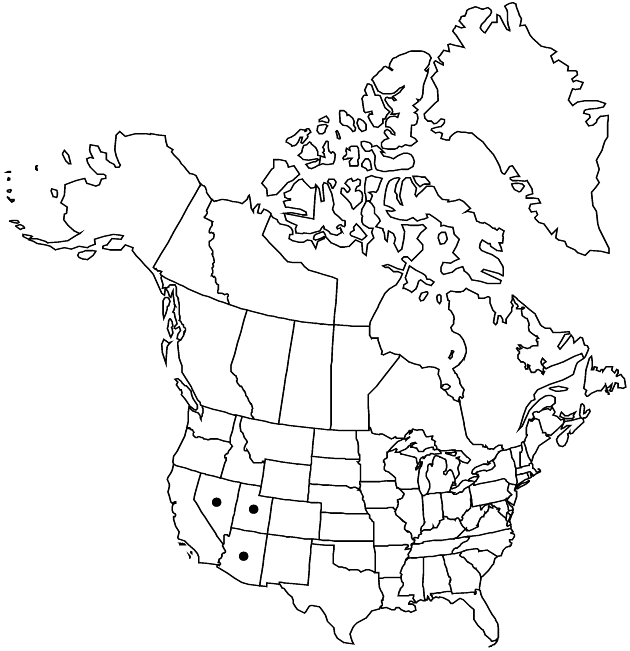Difference between revisions of "Townsendia jonesii"
Great Basin Naturalist 30: 35. 1970.
imported>Volume Importer |
imported>Volume Importer |
||
| Line 56: | Line 56: | ||
|publication year=1970 | |publication year=1970 | ||
|special status=Endemic | |special status=Endemic | ||
| − | |source xml=https:// | + | |source xml=https://bitbucket.org/aafc-mbb/fna-data-curation/src/2e0870ddd59836b60bcf96646a41e87ea5a5943a/coarse_grained_fna_xml/V19-20-21/V20_445.xml |
|tribe=Asteraceae tribe Astereae | |tribe=Asteraceae tribe Astereae | ||
|genus=Townsendia | |genus=Townsendia | ||
Latest revision as of 20:03, 5 November 2020
Perennials, 1–2(–4) cm (usually ± pulvinate). Stems ± erect; internodes 0.1–1 mm, ± scabrellous to strigose. Leaves basal and cauline, blades ± spatulate to oblanceolate, 7–15(–35+) × 1–2(–4+) mm, not fleshy, faces ± scabrellous to strigose. Heads usually ± sessile, sometimes on scapiform peduncles 5–15+ mm. Involucres ± campanulate, 8–14 mm diam. Phyllaries 20–28 in 3–4+ series, the longer ± lanceolate, 4–8 mm (l/w = 2.5–5), sometimes glabrate, apices acute, abaxial faces usually sparsely strigillose. Ray florets 13–21; corollas white adaxially, laminae 5–7+ mm, ± densely glandular-puberulent abaxially. Disc florets 40–80+; corollas 4.5–5+ mm. Cypselae 2–3(–4+) mm, faces hairy, hair tips glochidiform or forked; pappi persistent; on ray cypselae 20–24 subulate to setiform scales 3–4+ mm; on disc cypselae 20–24 subulate to setiform scales 4–6(–8) mm.
Phenology: Flowering Apr–Jun.
Habitat: Rocky slopes, limestone slopes with pinyons
Elevation: 2100–3000 m
Distribution

Ariz., Nev., Utah.
Discussion
The current circumscription of Townsendia jonesii is, perhaps, too lumpy. Some lumps might be better treated as distinct species and/or included within the circum-scription of T. scapigera.
Selected References
None.